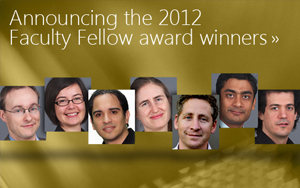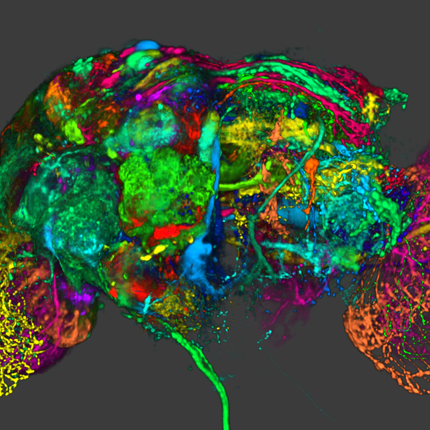 Congratulations to Miriah Meyer who has been selected as one of seven Microsoft Research Faculty Fellows for 2012. The award recognizes innovative, promising new faculty members from research institutions around the world for their advancements in computing research. Miriah will receive her grant at Microsoft’s 2012 Faculty Summit on July 16-17 in Redmond, Washington.
Congratulations to Miriah Meyer who has been selected as one of seven Microsoft Research Faculty Fellows for 2012. The award recognizes innovative, promising new faculty members from research institutions around the world for their advancements in computing research. Miriah will receive her grant at Microsoft’s 2012 Faculty Summit on July 16-17 in Redmond, Washington.Salt Lake Tribune Article
Microsoft Research Faculty Fellowship Program
Each year since 2005, Microsoft Research has recognized innovative, promising new faculty members from a number of research institutions to join the ranks of Microsoft Research Faculty Fellows. This program now encompasses more than 50 academic researchers whose exceptional talent for research and innovation in computer science identifies them as emerging leaders in their fields. The selected professors are exploring breakthrough, high-impact research that has the potential to help solve some of today’s most challenging societal problems.2012 Faculty Fellowship Awards
In April 2012, seven Microsoft Research Faculty Fellowship grant recipients were selected from applicants from four regions: Latin America and the Caribbean; Europe, the Middle East, and Africa; the United States and Canada; and Australia and New Zealand.Microsoft Research Faculty Fellowships Help New Professors Succeed
The road to tenure can be a bumpy one for early career professors in any field. Most find their first few years filled with a seemingly endless process of writing grant proposals. For the professors selected as Microsoft Research Faculty Fellows each year, this “overhead” is considerably lessened, allowing them to concentrate on the business of pursuing their research with minimal distractions. Microsoft Research selects a handful of top early-career professors in the field of computer science and provides them each with a cash award.About the Program
Microsoft Research seeks nominees who are advancing computing research in novel directions with the potential for high impact on the state of the art, and who demonstrate the likelihood of becoming thought leaders in the field.The future of computing in academe rests with its newest faculty. In these early-career professionals lie the seeds of tomorrow’s great innovations. However, while recognized faculty with well-established reputations are able to attract the financial support necessary for substantial research programs, new faculty often struggle to secure adequate support to allow them to realize their full potential.
Because new faculty are so vital to the future of academic computer science, the Microsoft Research Faculty Fellowship Program identifies, recognizes, and supports exceptional new faculty members engaged in innovative computing research. The objective of this program is to stimulate and support creative research undertaken by promising researchers who have the potential to make a profound impact on the field of computing in their research disciplines.
This fellowship was previously known as the Microsoft Research New Faculty Fellowship in the United States and Microsoft Research European Fellowship in Europe. In 2010, the reach of these programs has broadened; Microsoft Research selected seven fellows this year from nominees from Latin America and the Caribbean; Europe, the Middle East, and Africa; the United States; and Canada.
About the Awards
Each fellowship includes a cash award. The Microsoft Research Faculty Fellows also have access to other Microsoft resources, such as software, invitations to conferences, and engagements with Microsoft Research. Microsoft awards seven Microsoft Research Faculty Fellowship grants each year; awardees are selected in April.The Microsoft Research Faculty Fellowship Awards program provides recipients considerable freedom in planning the focus of their academic research. The funds can be applied to a wide variety of uses to pursue novel research. Examples of possible research areas include, but are not limited to: interdisciplinary research, scientific computing, bioinformatics, computational biology, software engineering, and other areas where computing transforms the discipline and advances the state of the art.




